by MATTHEW GAULT
In 1981, an American writer sneaked into Afghanistan following a dream. He survived — barely — and wrote a play that eventually became a movie. The Beast, which debuted in 1988, is about a Soviet tank crew that finds itself all alone in hostile Afghanistan.
It’s a masterpiece — one inspired by a terrible, terrible war.
The Soviet Union invaded landlocked Afghanistan in 1979. The campaign would last eight years and kill nearly 15,000 Russians … and more than 80,000 Afghans.
At the time of the invasion, New Jersey native William Mastrosimone was 34 years old and a playwright. He had graduated from Rutgers University a few years before. He didn’t know much about Afghanistan.
In 1980, a New York City theater staged his first play. The Woolgatherer is a dark comedy about two desperate people searching for love in South Philadelphia. Critics and audiences loved it.
“It was the first time I made a living as a writer,” Mastrosimone tells War Is Boring.
One day during rehearsal, Mastrosimone grew restless. “I got to walking around and reading The New York Times,” he says. He noticed a picture of an Afghan tribal leader and read the accompanying interview.
“‘We’re going to fight to the last man, to the last bullet,’” Mastrisomine quotes from the interview. “‘Right now, my men are eating tree bark to stay alive.’”
The playwright saw something in the mujaheddin leader. “It just reminded me so much, of the men who followed [George] Washington,” he explains. “I was really keyed into the psyche of that leader.”
His interest became an obsession. “It wasn’t too long after that that I became less interested in [The Woolgatherer] and rehearsal than I became in Afghanistan.”
The obsession affected his sleep. “When I’m really hooked on something — on an idea or a script or a story — I dream about it,” he says.
One night, he awoke from a dream and scribbled a drawing on the back of a yellow legal pad.
“In the center of it was a very simple tank,” he says. “It’s surrounded by stick figures throwing spears and shooting arrows at it. I woke up in the morning and I had no memory of doing this.”
“And I just knew I was going [to Afghanistan]. I felt like I had to witness this fight between a superpower and a 12th-century power.”
Mastrosimone’s sketch. Sharon Mastrosimone photo
“I went to this restaurant called the Khyber Pass,” Mastrosimone recalls. The Lower East Side restaurant serves traditional Afghan food. It’s still there.
“I went in and I partook of the food and I started to get a little chummy with some of the waiters. I said, ‘I want to go to Afghanistan, how do I do that?’”
The waiter told Mastrosimone to call a travel agent. In other words, he blew him off.
He didn’t give up. He returned to Khyber Pass over and over again until one of the waiters broke down.
The Afghan explained that the staff thought Mastrosimone might belong to the CIA or the KGB. Either way, they didn’t trust him.
Mastrosimone told them he was a playwright, that he had a show in a theater right now. “I want to go to Afghanistan,” he told them. “I want to write about it.”
To prove his story, he invited two of the waiters to watch his play. They weren’t convinced until they saw a six-foot-tall marquee advertising the play. It was a giant copy of The Woolgatherer’s review in The New York Times.
The two Afghans explained to Mastrosimone that they didn’t feel Afghanistan was getting a fair shake in the media. The Soviets were murdering their people and America didn’t care.
“‘If this guy will write a play and The New York Times will come and see it and it’s just about two people — a trucker and a girl — imagine if he wrote about the war,’” Mastrosimone quotes the Afghans saying. “‘What would The New York Times do then?’”
Khyber Pass in the East Village. Khyber Pass photos via Facebook
One of the men from Khyber Pass told him what to do. “Go to Pakistan,” he said. “Go to Rawalpindi. There’s a hotel there. The Intercontinental Hotel. Get a room. We’ll come get you.”
Mastrosimone wanted to know how long he would need to wait in Pakistan. The Afghan told him he didn’t know. He would get there when he got there.
“You’re saying I’m going to go to Pakistan and wait around for you?” the American told the pair. “I need something solid.”
“This war will be won by faith alone,” the Afghan told him. “If you have no faith, then you have no business being there.”
“Fuck that,” Mastrosimone replied.
The war continued and Mastrosimone followed it obsessively. “The more I read, the more I knew I had to go no matter what.”
He called his contact and told the man he would go to the hotel. Then, he went to a travel agent. “I wrote a check for $5,000 for a round-trip to Pakistan,” he says. “That was all the money I had in the world.”
It was an incredible leap of faith. “There were times I really thought the guy made a fool of me,” Mastrosimone says.
“I have no idea who he is. I pictured him laughing with his friend, ‘That guy we sent to Pakistan? He’s still waiting in the room probably!’”
But the man rewarded his faith. He met Mastrosimone at the hotel, just as he’d promised, and put the American on a train.
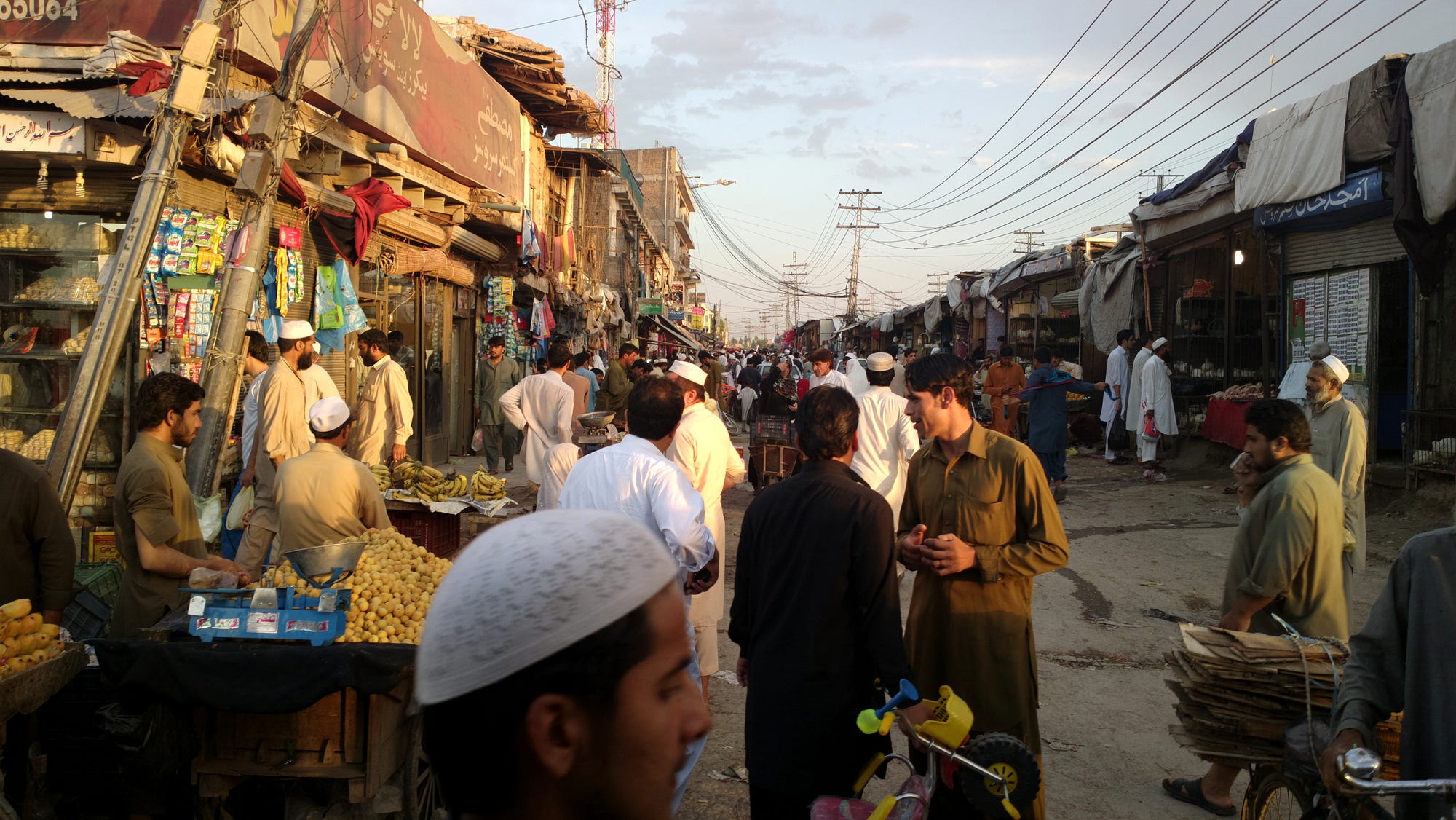 “They wouldn’t even tell me where it was going,” he says. The train stopped in Peshawar and Mastrosimone knew — again — that his contacts hadn’t jerked him around.
“They wouldn’t even tell me where it was going,” he says. The train stopped in Peshawar and Mastrosimone knew — again — that his contacts hadn’t jerked him around.
A bazaar in Peshawar. Drsaeed 90 photo via Wikimedia Commons
Before the group crossed the border, Mastrosimone needed to jump through one more hoop.
“My guy came in,” Mastrosimone explains. “[He] said, ‘Okay, we’re ready to go. We have to go see the warlord.’”
Mastrosimone wanted to know why. His contact explained that they needed permission to enter the country.
“You mean I came all the way here and this guy could say no?” Mastrosimone said. “Nobody told me this before.”
“That’s the way it is,” his contact said. “He’s the warlord. This is his territory. We can’t do what we want. We have to get permission. He wants to look at you.”
The warlord was Gulbuddin Hekmatyar.
Hekmatyar is one of Afghanistan’s most controversial figures. In his youth, the warlord studied engineering at college in Kabul. His university career ended after he murdered a fellow student.
He grew in prestige and power in the years leading up to the Soviet invasion. He was one of the warlords the CIA counted on to supply the mujaheddin with weapons and ammunition during the war.
Mastrosimone found all this out later. “I had no idea who he was,” he says. “It’s a guy in a black beard. He’s my age. He’s in a tent. They take me there. He looks at me. We shake hands.”
Hekmatyar spoke halting English. Mastrosimone knew only a few words in Pashto.
“All he wants to talk about is America and politics,” Mastrosimone recalls. “And he liked me. He sent for food.” The two sat and talked for hours before Hekmatyar allowed Mastrosimone to leave.
It wasn’t until the playwright returned to the U.S. that he discovered just how dangerous the warlord really was.
“He gave standing orders to throw acid in the faces of women who weren’t covered in the marketplace. He’s a monster, but while I was there I thought he was a great gentleman.”
Hekmatyar granted the group his permission to enter Afghanistan and assigned two guards to Mastrosimone. They sneaked across the border with vague plans to connect with some people running arms to Afghan fighters.
The first night was harrowing. “We heard a lot of fighting,” Mastrosimone recalls. “A lot of explosions that we could see that would light up the night for a split second.”
For the first time, the reality of the war hit the playwright. “Do I belong here?” He asked himself.
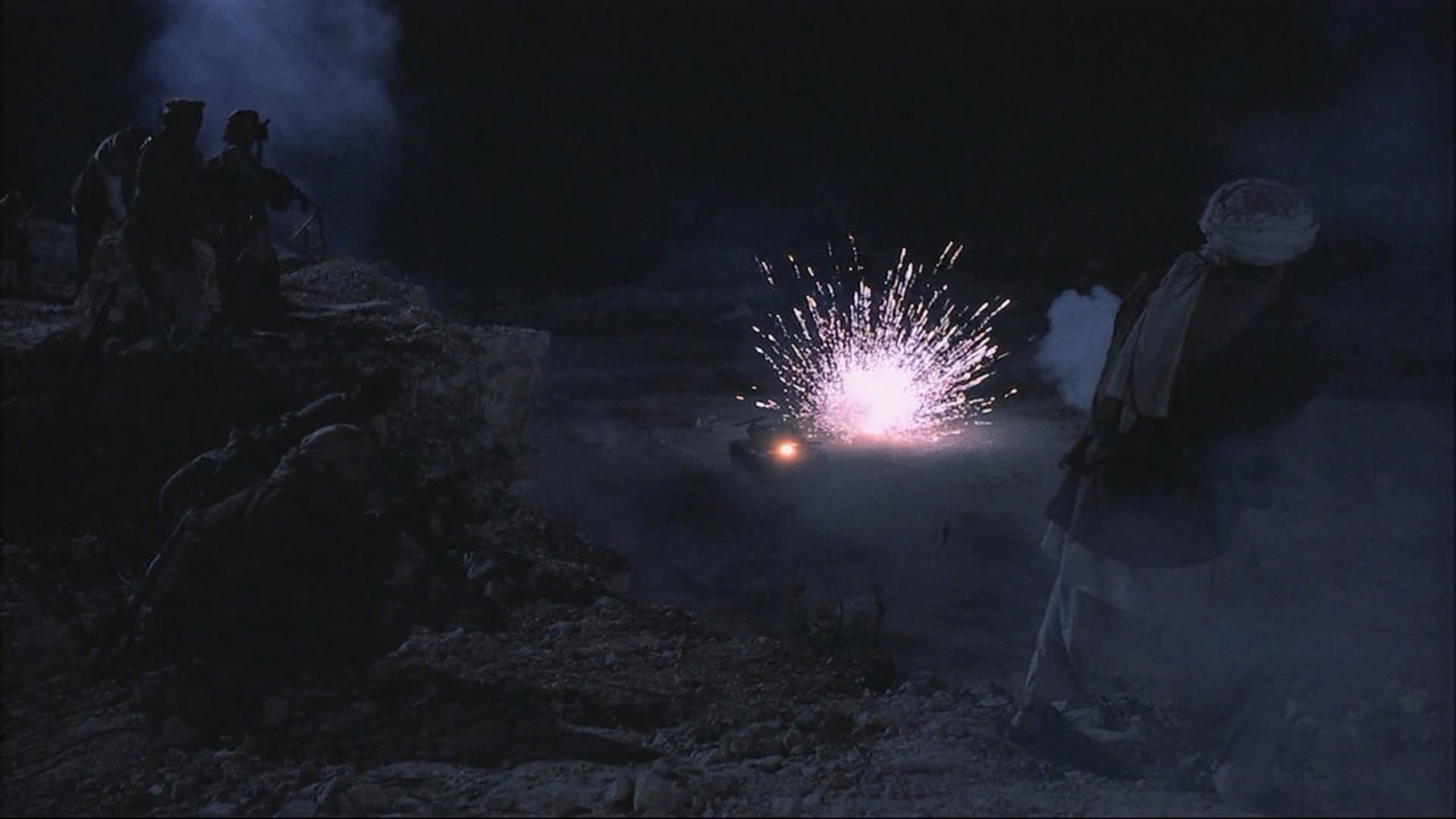 “I didn’t think it was the library. Like I was researching a war. But I really felt that … like Hemingway had to go and drive an ambulance in World War I. I thought of it in that way. If I’m going to write about it. I’m going to write about it truly. And this is what I have to.”
“I didn’t think it was the library. Like I was researching a war. But I really felt that … like Hemingway had to go and drive an ambulance in World War I. I thought of it in that way. If I’m going to write about it. I’m going to write about it truly. And this is what I have to.”
Mujaheddin fight Soviets in the dead of night in The Beast. Sony Pictures capture
The next morning, Mastrosimone woke up scared yet determined. Then he learned what had happened during the night.
“We were told that the Afghans ambushed a tank column,” he explains. “[The Afghans] put [down] enough dynamite … to destroy the first tank and the last tank on a narrow road. All the other tanks were trapped.”
It’s a tactic familiar to American veterans of Afghanistan. After the fighters disabled the Russian vehicles, they rushed the tanks and took 11 prisoners.
Mastrosimone’s handlers knew he was there to write about the war, so they offered him an interview with the Russians. One of the mujaheddin spoke Russian. He’d translate to Pashto then the playwright’s contact would translate to English.
But something bothered Mastrosimone about the interview. “When I’m done with my questions, then what?’” he asked his contact.
“We have to kill them,” the Afghan said. Then he quoted the Quran. “Attack not your enemy, but if your enemy attacks you, strike off his head.”
Mastrosimone knew he was in trouble.
“They’re going to live as long as I have a few questions,” he told himself. “I don’t want anything to do with this. I don’t belong here.”
Some of the Russians realized their only hope lay in the strange Westerner standing in front of them. “They were all really young,” Mastrosimone recalls.
“They all looked American. Blond hair, blue eyes some of them … one of them was looking at me and he was saying something in English. He was trying to make contact with me and someone hit him with the rifle butt and told him to shut up. The kid pissed his pants.”
Mastrosimone told his contact that he didn’t want anything to do with the Russians. His handlers were angry. They tried to force him to talk to the Soviets. They chastised him.
“What did you think we were doing here?” one asked.
The playwright turned and walked away. “I took one or two steps and the machine guns went,” he says. “I straightened up, thinking I was shot.”
He turned around. The Russians were dead. “I looked and the kids were twitching,” he says. “They finished them off and we went.”
A captured Soviet soldier in The Beast. Sony Pictures capture
“I was never in the military,” Mastrosimone says.
“You need to be trained for that stuff. That’s why they have boot camp. You can’t just go from New Jersey to Afghanistan and not have it affect you. If you’re not mentally prepared for what could come at you … it was tough. It was really tough to get through this.”
“I just thought, ‘This is the first day? We’re going deeper in the country? What else could happen here?’”
The group hooked up with a convoy of pack mules and horses loaded down with supplies and other ammunition. Hekmatyar’s guards returned to their warlord. The physical toll of walking through the harsh country began to wear on Mastrosimone.
“I had trained before I went there,” he explains. “I was in really great shape. Here with these guys, though, it was like I did nothing.”
The group worked their way through the Hindu Kush Mountains. He had trouble keeping up with his contact. “These guys, from birth, go barefoot walking in the mountains,” he says.
“They can sleep on the ground and have half a cup of tea and a handful of rice and they’re good. I was always thinking, ‘Where’s the pizza man?’”
They took water and food where they could. One evening, the group drank water from melting mountain ice. The next morning, Mastrosimone couldn’t get up.
“I could not raise myself off the ground,” he says. “My guy came over to me and said, ‘What’s the matter? You look terrible.’”
Mastrosimone explained that he couldn’t get up. His strength was gone. His contact conferred with the other members of the convoy and returned to the playwright.
“When we’re born,” his contact began, “Allah writes on our forehead what our fate is with his finger. But we can’t see it. It’s invisible. Whatever he wrote on your head, I don’t know what it is. Maybe he wrote that you are to die on this mountain. If that’s true, there’s nothing we can do about it. That’s Allah.”
“But if he didn’t write that. If he wrote that you’re to die in New Jersey or on the other mountain, that’s good. But you don’t know. So you have to live. Whatever happens, you have to accept it.”
Then came the real bad news. “We have to leave you here,” his contact said. “We can’t put you on an animal. They’re already overloaded.”
Mastrosimone was confronted by what he calls the fatalism of Islam. “I’m looking at the peaks of the mountains covered with snow,” he recalls.
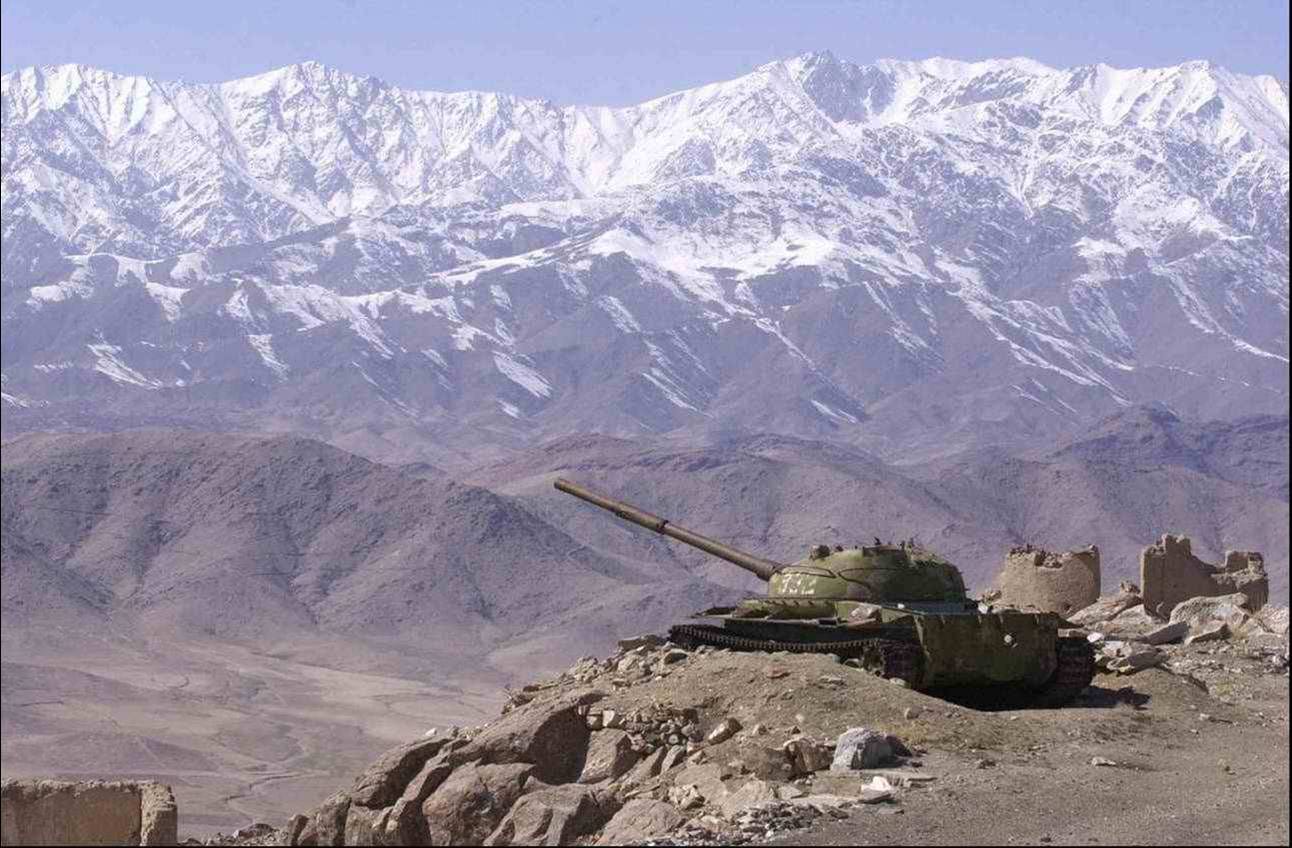 “There’s a little bit of snow falling. I’m looking at forever. There’s nothing. You don’t see anything.”
“There’s a little bit of snow falling. I’m looking at forever. There’s nothing. You don’t see anything.”
The Hindu Kush Mountains, a Soviet tank in the foreground. Davric photo via Wikimedia Commons
His contact left him an antique pistol. “It looks like it was over 100 years old,” Mastrosimone says. The Afghan opened the cylinder, pulled out four bullets and left the playwright with two. “Not a word why. I guess the second bullets for … compassion. In case you fuck up the first shot.”
Mastrosimone lay on the ground in the middle of a mountain pass, contemplating his death. “I was absolutely calm because I was so angry at myself,” he says. He says he has a tendency to get in over his head.
On that mountain in 1981, he thought it was the last time he’d have to deal with that problem.
The playwright had no food or water and could barely move. He rolled to an alcove on the side of the mountain. “My first instinct was to get out of the wind,” he explains.
There, he slowly used the last of his strength to wall in the alcove with rocks from the path. His makeshift hovel complete, he passed out.
He woke up later when the sun cut into his eyes. Suddenly, the sun was gone and he saw an eye. A small boy bent down next to him. The boy thought he’d discovered a sleeping Russian and he called for help.
It turns out a small village stood at the top of the mountain.
The boy went and gathered the people of the village and they all came to inspect the sleeping Russian, and probably to kill him.
Luckily, one of the villagers spoke English — and that spared Mastrosimone a grisly death.
They pulled him from his alcove and carried him up the road. “I felt so helpless on one hand and so grateful on the other,” he says. “I didn’t know if they were going to throw me off the cliff.”
The English-speaker was a doctor named Mohammed Mohammed. He was a dual citizen of England and Afghanistan who spent a few months out of the year back in his home village, using the medicine he’d learned in the West to help his people.
He chastised Mastrosimone for drinking the mountain water and told him he had all kinds of things wrong with him.
“I was on his floor and he was doing what he could for me,” the playwright says, his voice trembling. “An old woman came in. She had a black goat with her. He explained that this woman lost her husband, her sons, all her brothers. Everybody in the war.”
“The woman asked if she could make some food for me,” Mastrosimone says. “Some rice. Some soup. Something.”
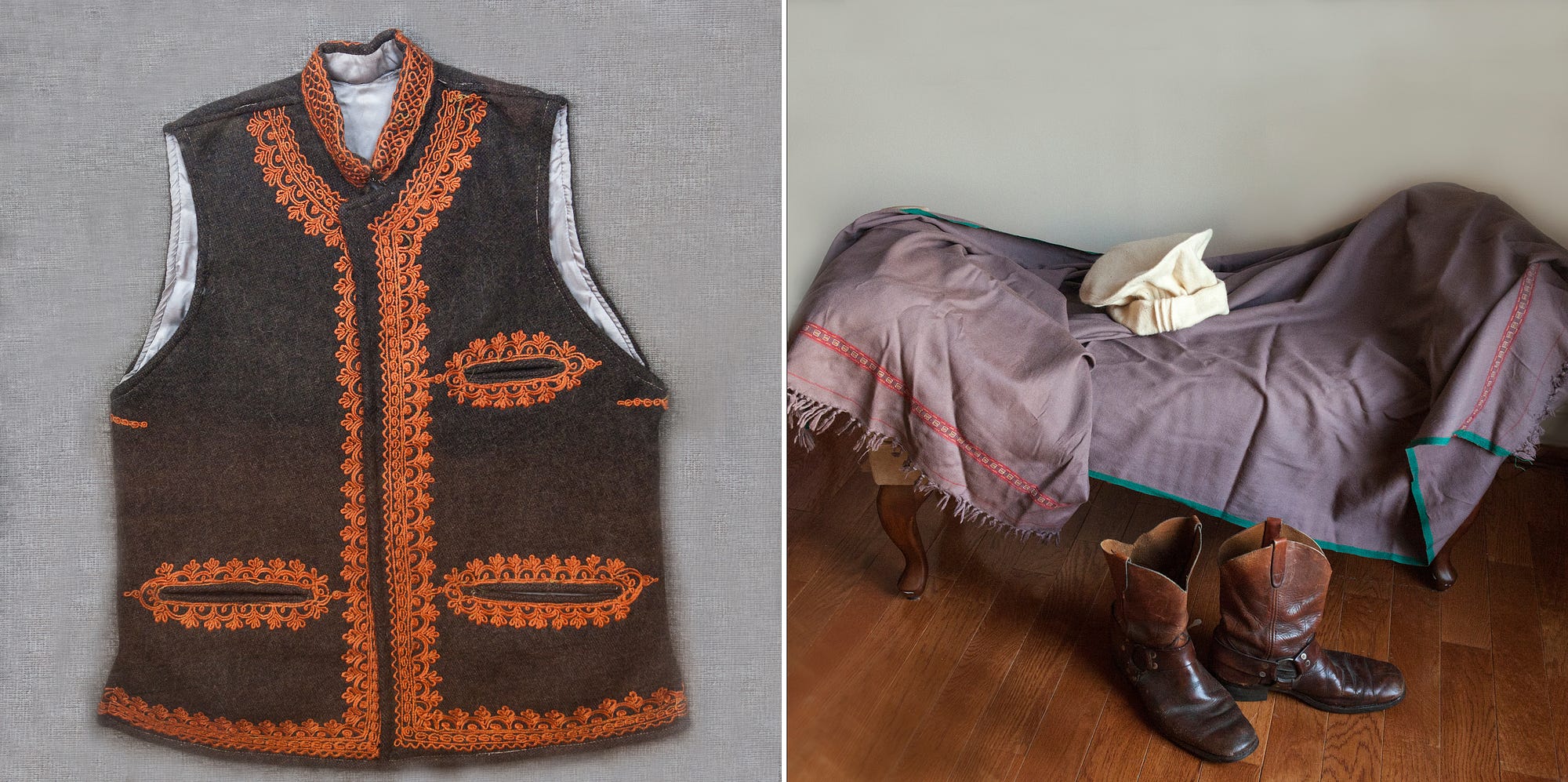 The doctor told the woman the American could only eat yogurt and drink green tea. He was still a few days away from handling a hearty soup. She promised to make him soup when he felt better.
The doctor told the woman the American could only eat yogurt and drink green tea. He was still a few days away from handling a hearty soup. She promised to make him soup when he felt better.
The vest, boots, blanket and hat Mastrosimone wore in Afghanistan. Sharon Mastrosimone photo
She made good on that promise. “It was a fantastic soup,” Mastrosimone says. He asked Mohammed what was in it and the doctor didn’t know. There was some kind of meat in it that neither could identify.
“That soup really picked me up,” Mastrosimone says. “It made me feel strong.” A few days later, he felt well enough to explore the village. He found the old woman outside of her hut, sweeping. On a tree next to the hut, a goatskin dried in the sun.
He knew then what she’d used to make his soup. “That is Afghan hospitality,” he says. “That’s it right there in a nutshell … they will give you whatever they have. If it’s the last thing they have, they will give it to you.”
Mastrosimone was so moved by the woman’s kind gesture that he made a promise. “I said to myself, ‘One day, I’m gonna do something for this country. For this woman, this village.’ That’s why, years later, my wife and I decided to adopt a girl.”
The adoption is a touchy subject for Mastrosimone. “It was not easy. There’s things I can’t talk about,” he explains. “Nothing illegal. Nothing like that. It’s just there’s some sensitive issues I vowed I would never talk about.”
A week into his recovery, Mastrosimone’s contact came back through the mountain. He was happy to see the playwright alive and well.
“Ah,” the contact said. “Allah did not write that you would die on this mountain. At least you know that.”
A lot of people would be furious if their handlers left them half-dead on the side of a mountain. Mastrosimone was not. He laughs as he recalls the reunion.
His contact was on his way to Pakistan, but Mastrosimone was still too weak to travel with him. It was a few more days before the playwright could walk long enough to make the journey back to Peshawar.
Before Mastrosimone left for Afghanistan, he had written a first draft of the play Nanawatai, about a Soviet tank crew and its desperate battle with the mujaheddin. “I wasn’t sure if I’d ever come back,” he explains.
When he got home, he knew exactly what to do to fix the first draft. He rewrote the play. It played in Norway and Los Angeles. Director Kevin Reynolds contacted him. Reynolds said he could imagine Nanawatai as a film.
Mastrosimone agreed and adapted his stage play into a screenplay. He called it The Beast. Reynolds and Mastrosimone began filming it for Columbia Pictures. Halfway through production, ownership of the studio changed.
The new executives weren’t interested in Mastrosimone’s take on Afghanistan. Sylvester Stallone had approached them with an idea for Rambo III, another film set in Afghanistan that the execs at Columbia thought had a better chance of making money.
Just like that, they buried The Beast. To meet a contractual obligation, Columbia released the movie in two theaters in New York City and Los Angeles. The movie ran a few weeks and withered away.
That’s not the end of the story for The Beast.
Mastrosimone has gone on to have an incredibly successful career. He’s written more plays and screenplays for television and film. He’s won Emmys. But he still thinks about The Beast and Afghanistan.
“It’s my best work,” he says. “I don’t care if it’s an Academy Award [winner]. I just want the movie to get its due some day.”
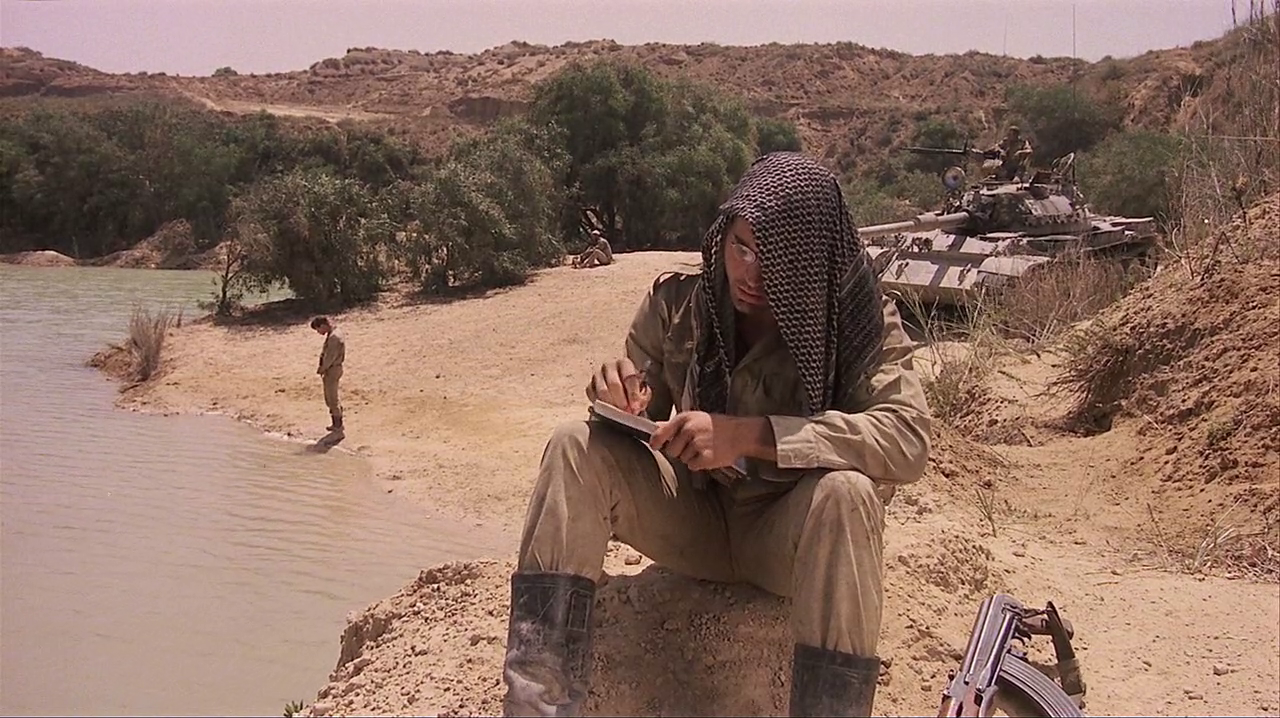
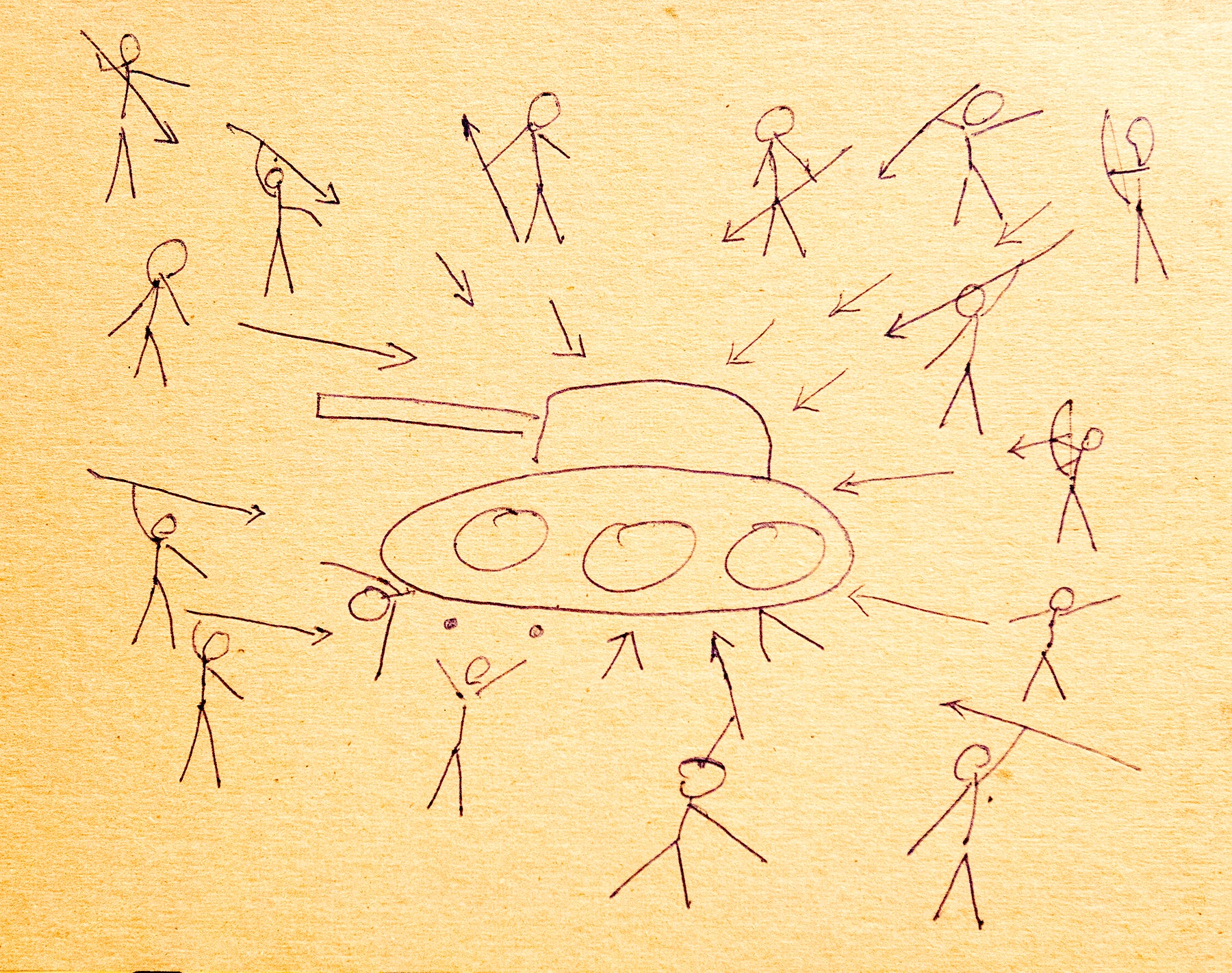
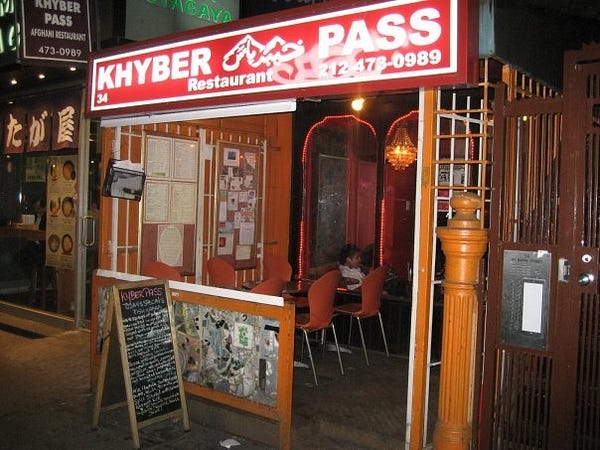
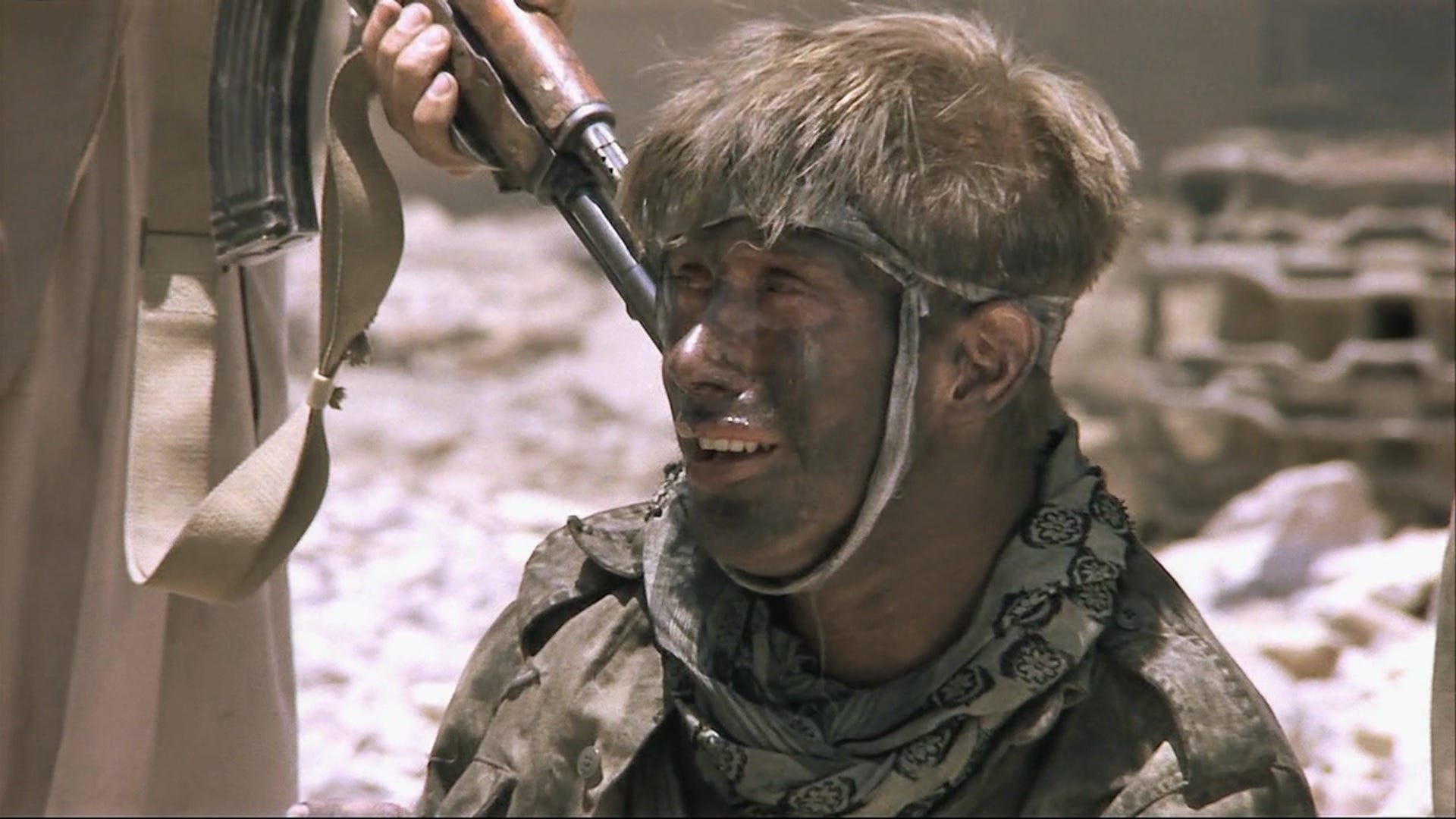
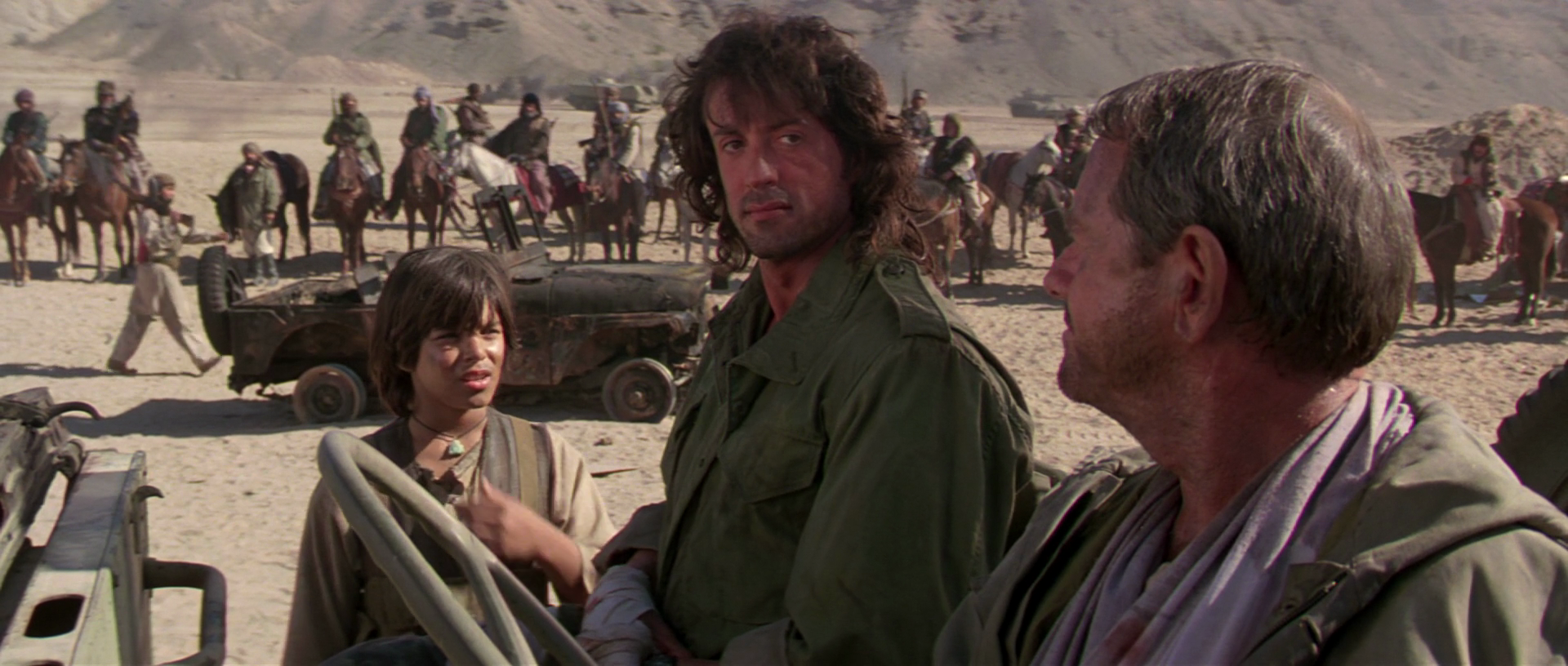
No comments:
Post a Comment